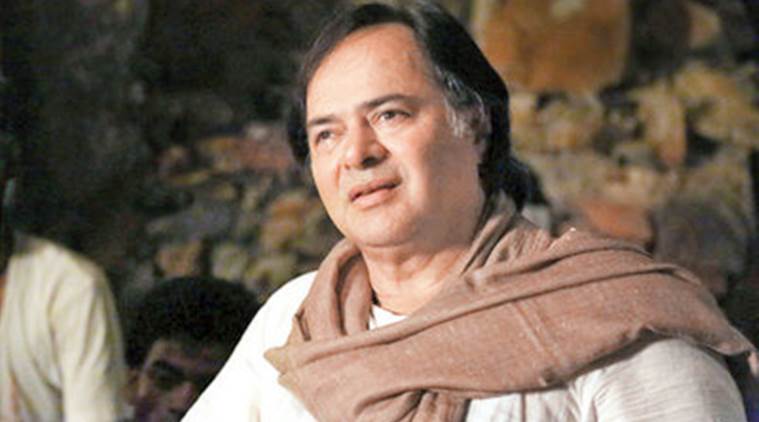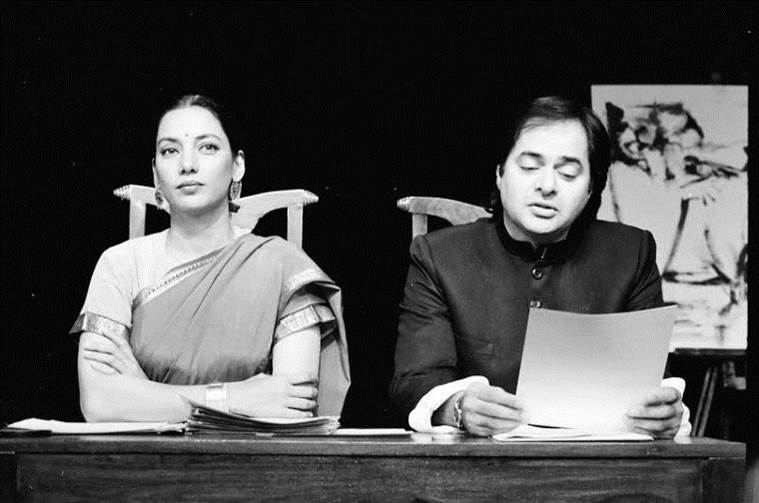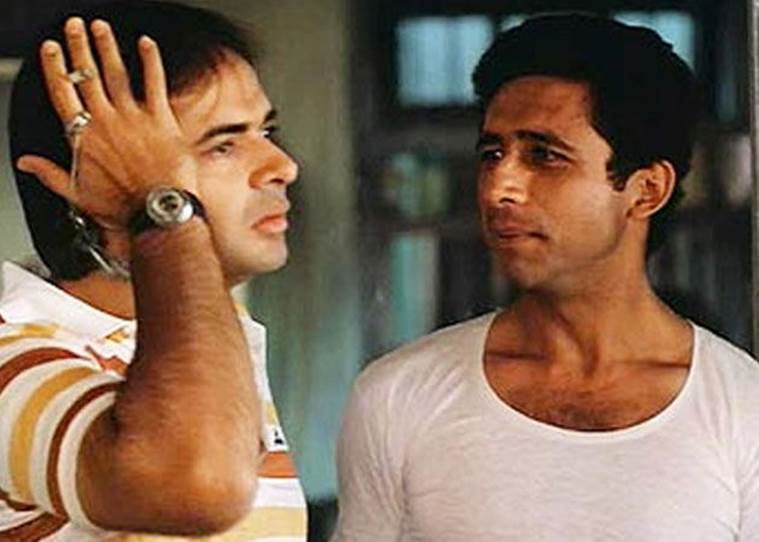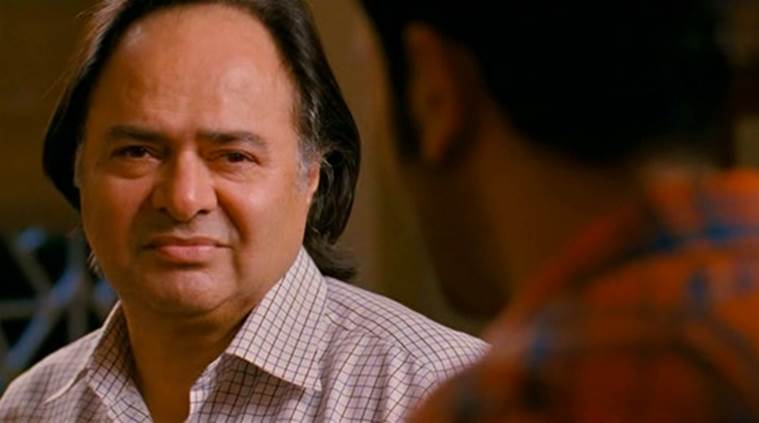Remembering Farooque Shaikh: A gentleman actor who brought nazakat to cinema
Farooque Shaikh was an actor of ineffable gladness and a gentleman of civility and nuance, who brought a vanishing 'nazaakat' to his lines. With his passing, Hindi cinema and theatre lost a terrific artiste, and a lovely man.

“Adaab. Is this the number of Ms Shubhra Gupta who writes for Ind Exp ( sic)? Farooque Shaikh”. With this text message, I began a series of conversations with one of the finest actors that Hindi cinema has had the privilege of hosting. He had nice things to say about a piece I had written, and ended that exchange with: “allah karey zor-e-kalam aur zyaada”.
Our last phone chat happened after the release of his Club 60, in which he said, “for actors like us, we need sensible, sensitive opinion, to tweak our ears and keep us on our toes”. From any other actor who had been on the job for over forty years, it would have seemed like a humble brag, a reverse I-am-so-regular-even-when-I-know-I’m so-great-kind of comment. From Farooque Shaikh, it came across as exactly who he was: an actor of ineffable gladness and a gentleman of civility and nuance, who brought a vanishing ‘nazaakat’ to his lines. With his passing, Hindi cinema and theatre lost a terrific artiste, and a lovely man.
Farooque Shaikh came to Hindi cinema when actors like him were given the parts they deserved. The mid 70s and some of the 80s were the years when middle-of-the-road was not just a smart phrase. They produced a kind of cinema which addressed, with a great deal of gentleness, sharply-observed humour and excellent writing, the needs of an audience which was happy to see their own stories. Along with Amol Palekar, Farooque became the poster boy of that kind of film-making. As Hindi cinema turned into Bollywood, and began coasting on crass and vulgar content, he found himself on stage (the play ‘Tumhari Amrita, a two-actor dialogue between him and Shabana Azmi, was an unforgettable experience), and television, as a genial and engaging host. His film appearances became fewer, but they invariably lifted the projects he said yes to.

The pleasure that a good performer can give does not depend upon how much time he is on screen. This is evident in his very first brief outing in M S Sathyu’s classic ‘Garam Hawa’ (’73), in which he plays a young student who swings between idealism and despair, representing the voice of a new India struggling with ethnic and religious identities. It was the same enthusiasm and zest which shone through in the be-sixty-and-happy Club 60, in which he is the heart-broken father of a son too-young-dead, learning to walk past his grief and live again.
There was a little frisson in his performance in Club 60 which felt as if he was channeling an inner sadness, a carryover from his off-screen life. At that time, I dismissed it as a reading-too-much-into-a-scene-problem, something film critics are sometimes prone to. But now, looking back, I wonder: what was it that he was feeling, when he made us feel his pain? Was it an unknowing prescience?
Not that he was all down in the dumps and serious. In one of his best early performances he plays a wily, smarmy fellow who takes advantage of his ‘seedha–saadha’ friend, and takes his love away: Sai Paranjaype’s Katha (’83) was as definitive a Bombay chawl film as was Chashme-Buddoor (’81) a Dilli-in-the-80s-film. In the former , he is a ‘kaamchor’ and ‘chichhor’ (shirker of work, and a lout); in the latter, he is one of three DU (Delhi University) students who lives on fresh air and ground-out cigarette butts and dreams of the girl-next-door. Though he showed he could be crafty in Katha, leaving the good-guy role to Naseerudin Shah who gets the girl, Farooque mostly got to play nice, because that’s the way he came across most strongly: a fresh-faced young fellow, with slicked-side-parted hair, attired in a bush-shirt and trousers, not really tucking in his tummy, spreading positivity.
Written by Shubhra Gupta | New Delhi | Updated: March 25, 2018 8:28 am
“Adaab. Is this the number of Ms Shubhra Gupta who writes for Ind Exp ( sic)? Farooque Shaikh”. With this text message, I began a series of conversations with one of the finest actors that Hindi cinema has had the privilege of hosting. He had nice things to say about a piece I had written, and ended that exchange with: “allah karey zor-e-kalam aur zyaada”.
Our last phone chat happened after the release of his Club 60, in which he said, “for actors like us, we need sensible, sensitive opinion, to tweak our ears and keep us on our toes”. From any other actor who had been on the job for over forty years, it would have seemed like a humble brag, a reverse I-am-so-regular-even-when-I-know-I’m so-great-kind of comment. From Farooque Shaikh, it came across as exactly who he was: an actor of ineffable gladness and a gentleman of civility and nuance, who brought a vanishing ‘nazaakat’ to his lines. With his passing, Hindi cinema and theatre lost a terrific artiste, and a lovely man.
Farooque Shaikh came to Hindi cinema when actors like him were given the parts they deserved. The mid 70s and some of the 80s were the years when middle-of-the-road was not just a smart phrase. They produced a kind of cinema which addressed, with a great deal of gentleness, sharply-observed humour and excellent writing, the needs of an audience which was happy to see their own stories. Along with Amol Palekar, Farooque became the poster boy of that kind of film-making. As Hindi cinema turned into Bollywood, and began coasting on crass and vulgar content, he found himself on stage (the play ‘Tumhari Amrita, a two-actor dialogue between him and Shabana Azmi, was an unforgettable experience), and television, as a genial and engaging host. His film appearances became fewer, but they invariably lifted the projects he said yes to.

The pleasure that a good performer can give does not depend upon how much time he is on screen. This is evident in his very first brief outing in M S Sathyu’s classic ‘Garam Hawa’ (’73), in which he plays a young student who swings between idealism and despair, representing the voice of a new India struggling with ethnic and religious identities. It was the same enthusiasm and zest which shone through in the be-sixty-and-happy Club 60, in which he is the heart-broken father of a son too-young-dead, learning to walk past his grief and live again.
There was a little frisson in his performance in Club 60 which felt as if he was channeling an inner sadness, a carryover from his off-screen life. At that time, I dismissed it as a reading-too-much-into-a-scene-problem, something film critics are sometimes prone to. But now, looking back, I wonder: what was it that he was feeling, when he made us feel his pain? Was it an unknowing prescience?
Not that he was all down in the dumps and serious. In one of his best early performances he plays a wily, smarmy fellow who takes advantage of his ‘seedha–saadha’ friend, and takes his love away: Sai Paranjaype’s Katha (’83) was as definitive a Bombay chawl film as was Chashme-Buddoor (’81) a Dilli-in-the-80s-film. In the former , he is a ‘kaamchor’ and ‘chichhor’ (shirker of work, and a lout); in the latter, he is one of three DU (Delhi University) students who lives on fresh air and ground-out cigarette butts and dreams of the girl-next-door. Though he showed he could be crafty in Katha, leaving the good-guy role to Naseerudin Shah who gets the girl, Farooque mostly got to play nice, because that’s the way he came across most strongly: a fresh-faced young fellow, with slicked-side-parted hair, attired in a bush-shirt and trousers, not really tucking in his tummy, spreading positivity.

In both Chashme-Buddoor and Katha, he is teamed with Deepti Naval, with whom he had a long, fruitful screen association: their last joint appearance lifted an average film like Listen Amaya, in which the pair showed how good actors get better with age, just, yes, like fine wine. What could earlier be passed off with mere exuberance was now mature and filled with ‘thehraav’ (an actorly steadiness which calls attention to itself precisely because it is not showy). Both Deepti and Farqooue, just sitting across each other filled that room with their presence.
In the years before his untimely demise, Farooque’s appearances in such big-star vehicle, big-budget movies as Shanghai and Yeh Jawaani Hai Deewani lent the films much-needed heft. In the former, he played a dark character, and left me wondering if his trajectory would have been different with more ‘negative’ parts rather than the wholesome ones he usually got to do; in the latter, he brings rarely-seen understated poignance to a ‘filmi’ father.

But I think Farooque Shaikh did best with the good stuff, because he had such grace. As he himself would have said, and did to me several times, ‘Bahut Shukriya’. You showed us a good time at the movies.
article by theindianexpress
 SHARE
SHARE

